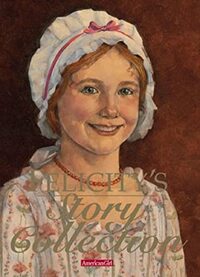Take a photo of a barcode or cover
34 reviews for:
Felicity's Story Collection With 3 Mini Paper Dolls and 2 Mini Scenes
Valerie Tripp, Dan Andreasen
34 reviews for:
Felicity's Story Collection With 3 Mini Paper Dolls and 2 Mini Scenes
Valerie Tripp, Dan Andreasen
adventurous
informative
medium-paced
Plot or Character Driven:
Character
Strong character development:
Yes
Loveable characters:
Yes
Diverse cast of characters:
No
Flaws of characters a main focus:
Yes
I love Felicity! She's my favorite other than Mia(the skater...)
adventurous
informative
inspiring
reflective
fast-paced
Plot or Character Driven:
A mix
Strong character development:
Yes
Loveable characters:
Yes
Flaws of characters a main focus:
Yes
adventurous
emotional
inspiring
medium-paced
Plot or Character Driven:
A mix
Strong character development:
Yes
Loveable characters:
Yes
Diverse cast of characters:
Complicated
Flaws of characters a main focus:
Yes
Encouraged good conversations about history with Eloise.
I just remembered how Felicity was my absolute favorite American girl and how I always wanted to be her.
I have been reading these series of "American Girls" with my daughters, and we all love them! We can hardly put them down.
adventurous
hopeful
lighthearted
sad
medium-paced
Plot or Character Driven:
A mix
Strong character development:
Yes
Loveable characters:
Yes
Diverse cast of characters:
Complicated
Flaws of characters a main focus:
Yes
Cure book. :) I got the Felicity doll for Christmas several years ago and the book came with it.
I like the Felicity books. Of all the earlier American Girls, I think she's the most like my personal favorite, Molly. Spunky.





